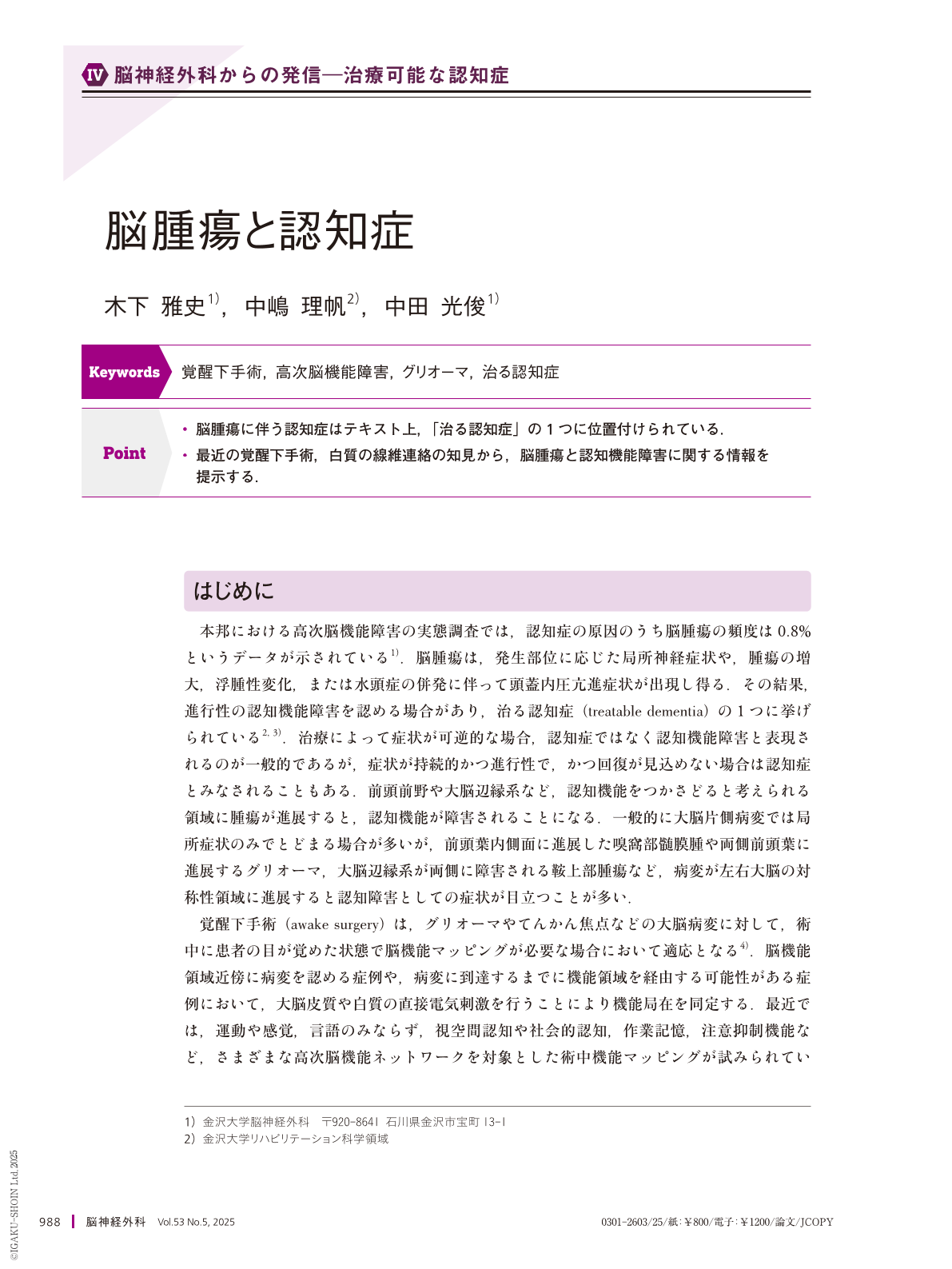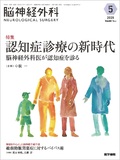Japanese
English
- 有料閲覧
- Abstract 文献概要
- 1ページ目 Look Inside
- 参考文献 Reference
Point
・脳腫瘍に伴う認知症はテキスト上,「治る認知症」の1つに位置付けられている.
・最近の覚醒下手術,白質の線維連絡の知見から,脳腫瘍と認知機能障害に関する情報を提示する.
Brain tumors are an uncommon but treatable cause of dementia, accounting for 0.8% of cases in Japan. Cognitive impairment in patients with brain tumors may result from focal neurological symptoms, increased intracranial pressure, or involvement of critical regions such as the prefrontal cortex and limbic system. Bilateral or midline lesions, including medial frontal gliomas, meningiomas, or suprasellar tumors affecting limbic circuits, often produce more prominent cognitive symptoms than unilateral lesions. Awake surgery has become a key technique for preserving higher cognitive functions by enabling intraoperative mapping of cortical and subcortical networks, particularly in lower-grade gliomas with potential for neuroplasticity. However, when preoperative deficits are already severe or bilateral damage is present, postoperative cognitive impairment may persist and affect daily functioning. In this report, we discuss the clinical manifestations of tumor-related cognitive dysfunction, including misdiagnoses as dementia, and illustrate how white matter tractography and awake surgery contribute to understanding and preserving cognitive networks. We also present cases of glioma patients whose cognitive function improved following awake surgery, and others in whom functional impairment remained due to surgical limitations or limited plasticity. Comprehensive preoperative assessment and tailored surgical planning are essential for optimizing both survival and neurocognitive outcomes in patients with brain tumors.

Copyright © 2025, Igaku-Shoin Ltd. All rights reserved.


